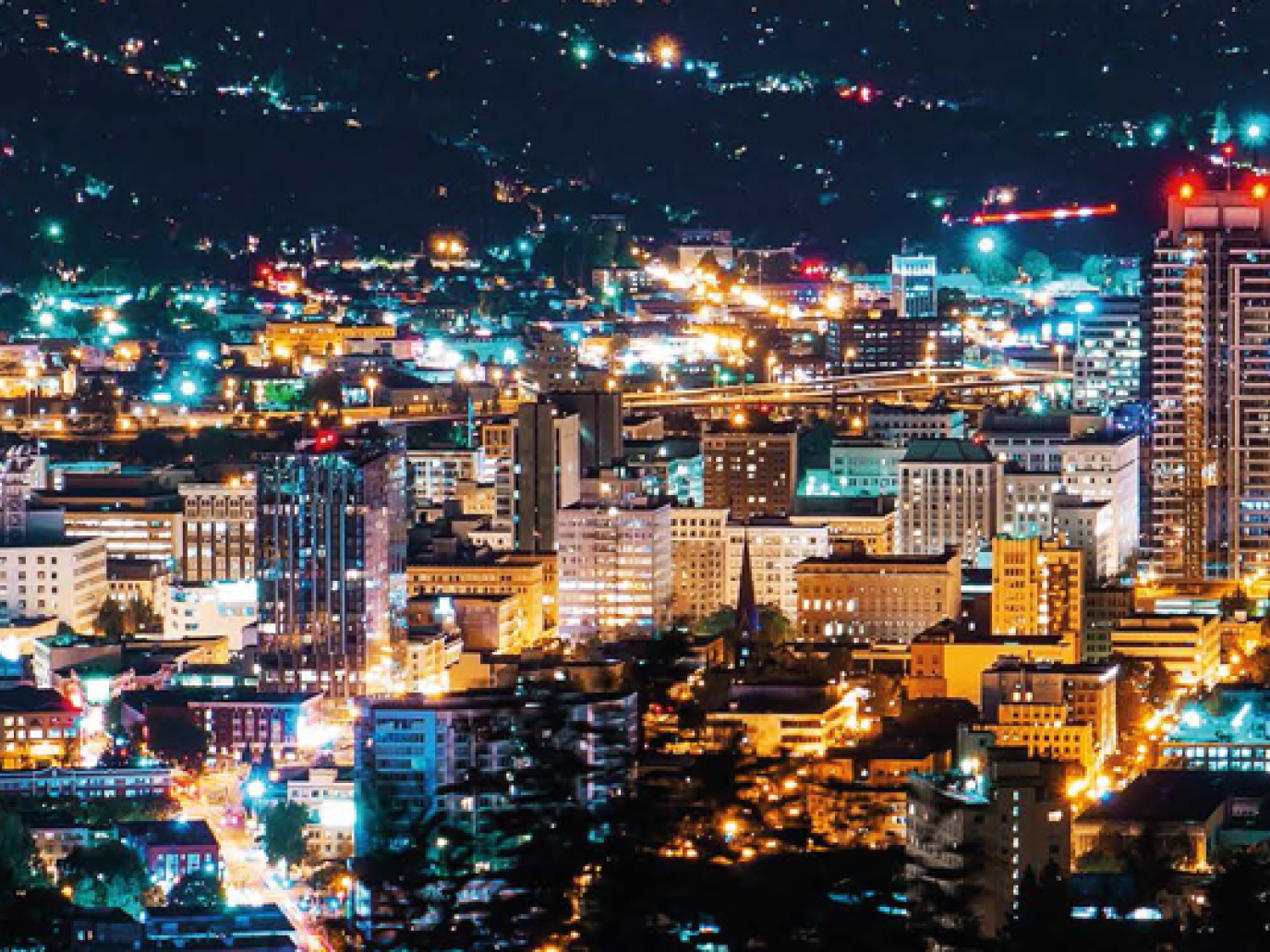Portland, Oregon (with a metropolitan area population of 2.3 million people) regularly tops the lists of “most sustainable cities” in the United States. For decades, Portland has been a national leader in initiatives that reduce energy use and protect the environment, like transit-oriented development, cycling infrastructure, farmland preservation, and food composting.
But, Portland is not really a sustainable city.
For all the city’s achievements, Portlanders still use far more resources – and create far more pollution – than the environment can renewably handle. This is of course true of any industrialised city. It’s not theoretically impossible for a modern city to be literally sustainable (i.e., able to persist indefinitely); but it would need to function quite differently than even the “greenest” of cities as we know them today. In our globalised civilisation, true sustainability is not an outcome achievable simply by scoring high on the right metrics. It is an ideal we can only strive towards iteratively, and on all scales.
Portland is also often referred to as a “resilient” city, and this too is not really true. Urban resilience is about the ability to adapt in the face of disruption while preserving the city’s essence. To be sure, Portland has many of the qualities popularly associated with resilience: climate change preparedness; redundancies in critical systems; and a strong civic culture and social cohesion. But, there is one big problem with declaring a city resilient: we don’t actually know what urban resilience really looks like!
The problem is that social-ecological systems’ resilience science (the intellectual foundation of urban resilience) was developed by studying the relationship of rural communities and the natural resources they make use of. We have some sense of how a small farming community might build its resilience to things like changing soil salinity and decreasing rainfall by adjusting certain governance structures and cultural norms. But, how would such ideas apply to globalised, industrialised, 21st-century communities made up of millions of people? We simply don’t know yet. Resilience scientists have begun tackling this question only in recent years.
Portland certainly can’t function in its current state indefinitely, and it would suffer greatly in a disruption like a catastrophic earthquake or a global economic depression. And yet, when it comes to sustainability and resilience, the city is clearly on a better trajectory than most others in the United States – thanks in large part to the fact that it has simply been working towards these ideals for longer than just about anywhere else. How did Portland do it? I think it comes down to two prerequisites: sufficient intention within the community, and sufficient government mechanisms.
Portland and Oregon indeed have a long history of intention towards what we now call sustainability and resilience. It may have its roots in the region’s relative isolation: the lush Willamette Valley, where white settlers established their cities and towns in the mid-1800s, is separated from the bulk of the United States by hundreds of kilometres of mountains and desert. Perhaps it was the visceral sense of geographic limits, together with a pioneer’s readiness to devise home-grown solutions, that led late 20th-century Oregonians to unusual (for the U.S. at the time) political initiatives like regional governance, land conservation, highway removal, and public space creation. As the need for urban sustainability and resilience became clear over the last 30 years, the pieces were already in place for Oregon – and Portland – to act.
If so, this means any community can achieve what Portland has achieved. Instead of chasing sustainability metrics and resilience frameworks, cities can cultivate long-term sustainability and resilience starts by focusing first on community awareness (the precursor to intention and political will) and government/management tools.
Post Carbon Institute, www.postcarbon.org
American Planning Association, www.planning.org


